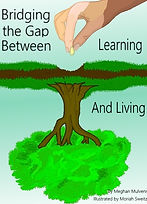As we approach the start to another school year, my calendar is filling up with Professional Development sessions for teachers and administrators. I can share in depth about the science of behavior, and the analytical process of determining the function of human behavior, though what strikes people the most is this simple but true statement:
“We get what we give.”
While most people instantly nod their heads in response to such a statement, it is not until they begin to reflect on their own behavior and where it has led them that they truly understand it. In a recent training I offered for dedicated aides of students with disabilities, I invited participants to fold a piece of paper in half; on one half I asked them to list, ‘Choices that built me stronger,’ and on the other, ‘Choices that made me weaker.’ The purpose: strike something within individuals that will support them in their roles to inspire students to make positive and powerful choices.
In another session on the science of behavior, I invite participants to list behaviors that they did, not said, on their commute to work, with a co-worker, at a restaurant, and finally with their students. Once we vividly depict that behavior is communication, we reflect together as to whether our ‘statement’ (in the form of an action) was heard or not. Then we imagine the frustration that a student feels when they communicate frustration by tearing up an assignment and is met with punishment instead of a solution.
When this deep level of thought goes in to understanding the very nature and outcomes of our own behavior, we are empowered to not only choose differently, but also inspire others to choose better. We realize that everything we are getting in situations is what we asked for. The only challenge is we weren’t aware that we were asking for it, so it comes as a surprise. Our first reaction then is to blame others. And we do it so often, we don’t even know it. It takes a lot of letting of ego to pause and reflect, ‘Could I have done that better?’ I imagine what a different world it would be, if even a few more individuals truly lived the statement, ‘We get what we give.’
For more information on speaking engagements, visit https://www.special-travelers.org/publications
#behavior #studentswithbehaviorchallenges #behavioranalysis #positivebehavior #behaviorintervention #education

